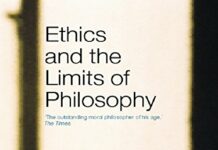
Ebook Info
- Published: 2009
- Number of pages: 418 pages
- Format: PDF
- File Size: 1.18 MB
- Authors: Bernard Williams
Description
Before his death in 2003, Bernard Williams planned to publish a collection of historical essays, focusing primarily on the ancient world. This posthumous volume brings together a much wider selection, written over some forty years. His legacy lives on in this masterful work, the first collection ever published of Williams’s essays on the history of philosophy. The subjects range from the sixth century B.C. to the twentieth A.D., from Homer to Wittgenstein by way of Socrates, Plato, Aristotle, Descartes, Hume, Sidgwick, Collingwood, and Nietzsche. Often one would be hard put to say which part is history, which philosophy. Both are involved throughout, because this is the history of philosophy written philosophically. Historical exposition goes hand in hand with philosophical scrutiny. Insights into the past counteract blind acceptance of present assumptions. In his touching and illuminating introduction, Myles Burnyeat writes of these essays: “They show a depth of commitment to the history of philosophy seldom to be found nowadays in a thinker so prominent on the contemporary philosophical scene.” The result celebrates the interest and importance to philosophy today of its near and distant past. The Sense of the Past is one of three collections of essays by Bernard Williams published by Princeton University Press since his death. In the Beginning Was the Deed: Realism and Moralism in Political Argument, selected, edited, and with an introduction by Geoffrey Hawthorn, and Philosophy as a Humanistic Discipline, selected, edited, and with an introduction by A. W. Moore, make up the trio.
User’s Reviews
Reviews from Amazon users which were colected at the time this book was published on the website:
⭐Clear, expert commentary on a range of philosophical issues written in elegant prose. A pleasure to read!
⭐Good Book
⭐Very thoughtful sober and perfectly reasoned
⭐Talking is the art of telling people what they want to know.People who become concerned about ethics are heading for trouble if they are part of a society which functions as a flash bang gravy train pulling a monetary net. The global financial system has a tremendous amount of hyperbolic cyberpower to draw on, but it functions mainly as a gambling addiction which considers a growth in numbers a sure sign of prosperity.Social systems produce critics who were born with a brain: instead of sharing the typical thoughts of people with high expectations, critics are likely to become solitary cranks. People like Bernard Williams and Myles Burnyeat, who are able to talk about virtue as it was discussed in an ancient setting in which power was not stable and personal relations were frequently like those that cause current social situations to implode, with an understanding of ancient philosophers and the modern irony adopted in shocking situations like Hume commenting on Rousseau as “little better than a Christian” (p. 269) and the English “relapsing fast into the deepest stupidity, Christianity and ignorance” (Ibid.), provide a foundation for students who wish to obtain a superior attitude for themselves and an anthropology which assumes America is conquering the world.It takes crackpot geniuses to keep the political factions which cause society to implode when enough people want everything to be all different because the spin has stretched the dissociations so far that nothing that has ever gone wrong can be stopped. Hume wrote The Natural History of Religion. Monotheism was criticized for condemning other gods. The intolerance and absolutism lead to dogmas: “one is led into an endless path of pseudo-reasoning, which is worse, because more corrupting and dishonest, than the primitive confusions of polytheism.” (p. 270).Social systems mainly need a way to control insanity, and providing students with a way to come up with individual ways of becoming crazy by justifying personal behavior as contributing to universal happiness is like the Jeff Bridges movie about writing a popular song: Crazy Heart. The last deleted scene on the DVD has an ending in relapse that was a fatal heart attack in the novel the movie was based upon. The sweetness and light with which students are taught is the form information takes in this book. Life is incredibly messy. Justice as a final good is not likely to be where a flash bang gravy train pulling a monetary net ends up.
⭐
Keywords
Free Download The Sense of the Past: Essays in the History of Philosophy in PDF format
The Sense of the Past: Essays in the History of Philosophy PDF Free Download
Download The Sense of the Past: Essays in the History of Philosophy 2009 PDF Free
The Sense of the Past: Essays in the History of Philosophy 2009 PDF Free Download
Download The Sense of the Past: Essays in the History of Philosophy PDF
Free Download Ebook The Sense of the Past: Essays in the History of Philosophy





